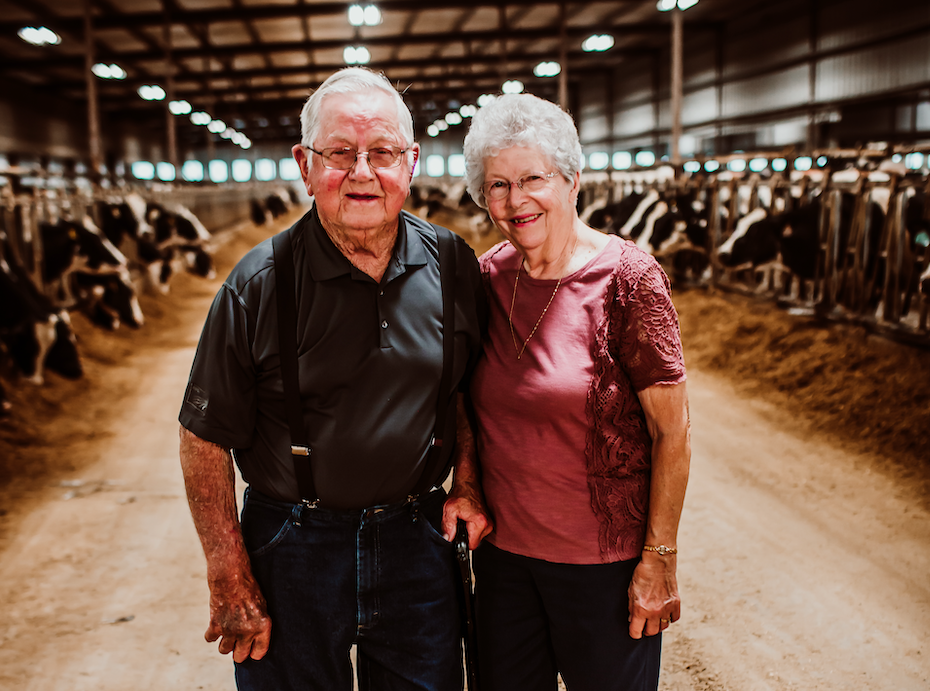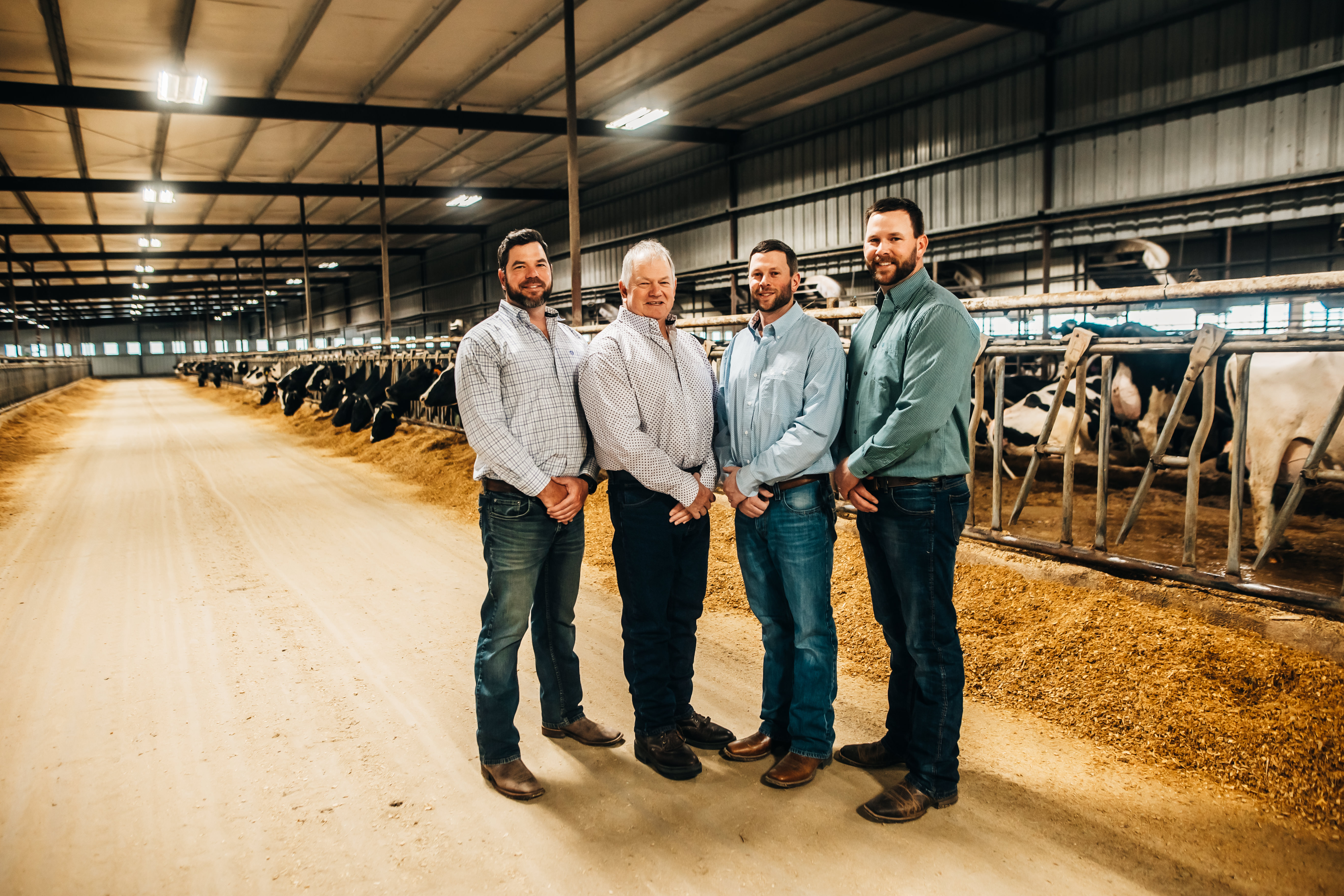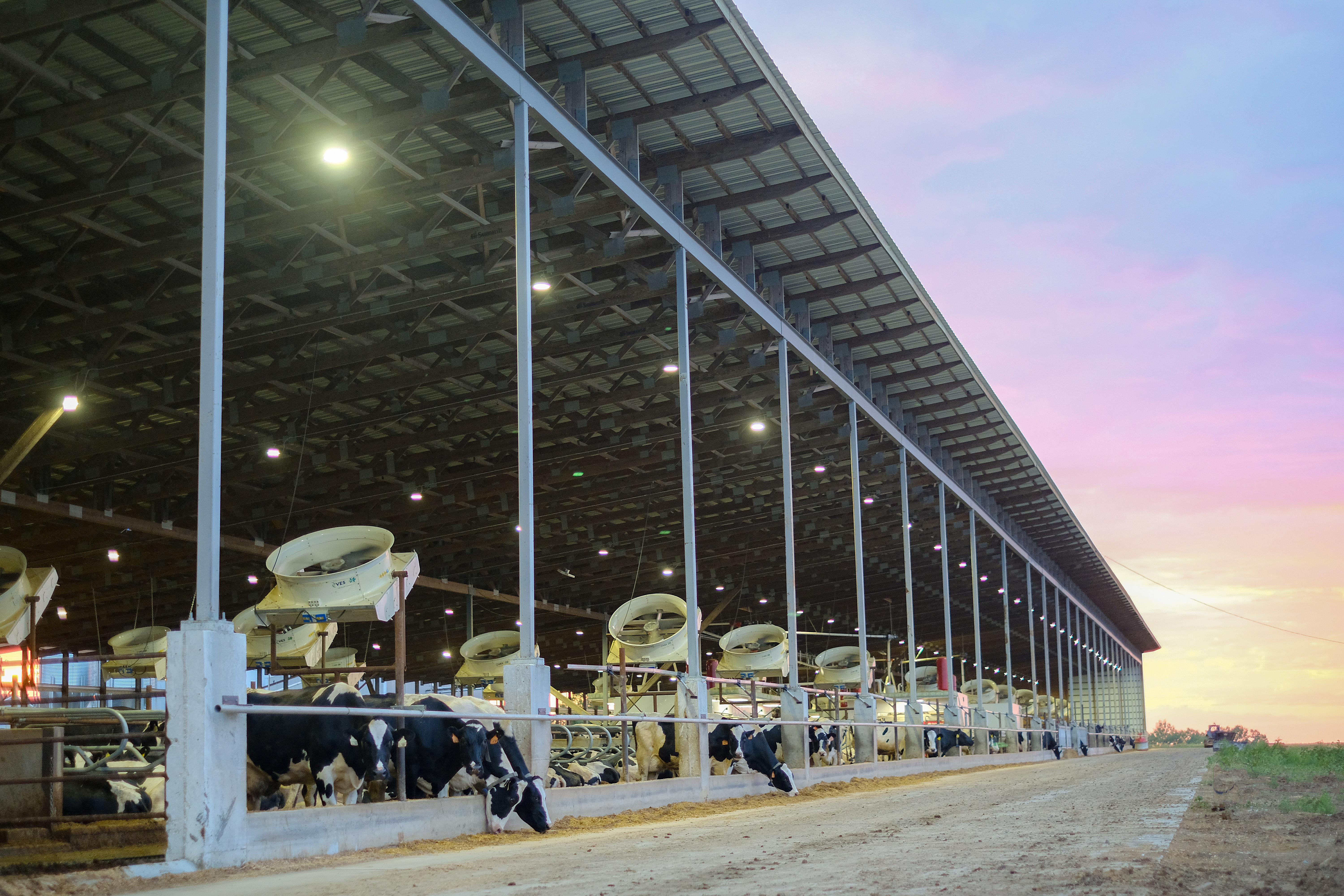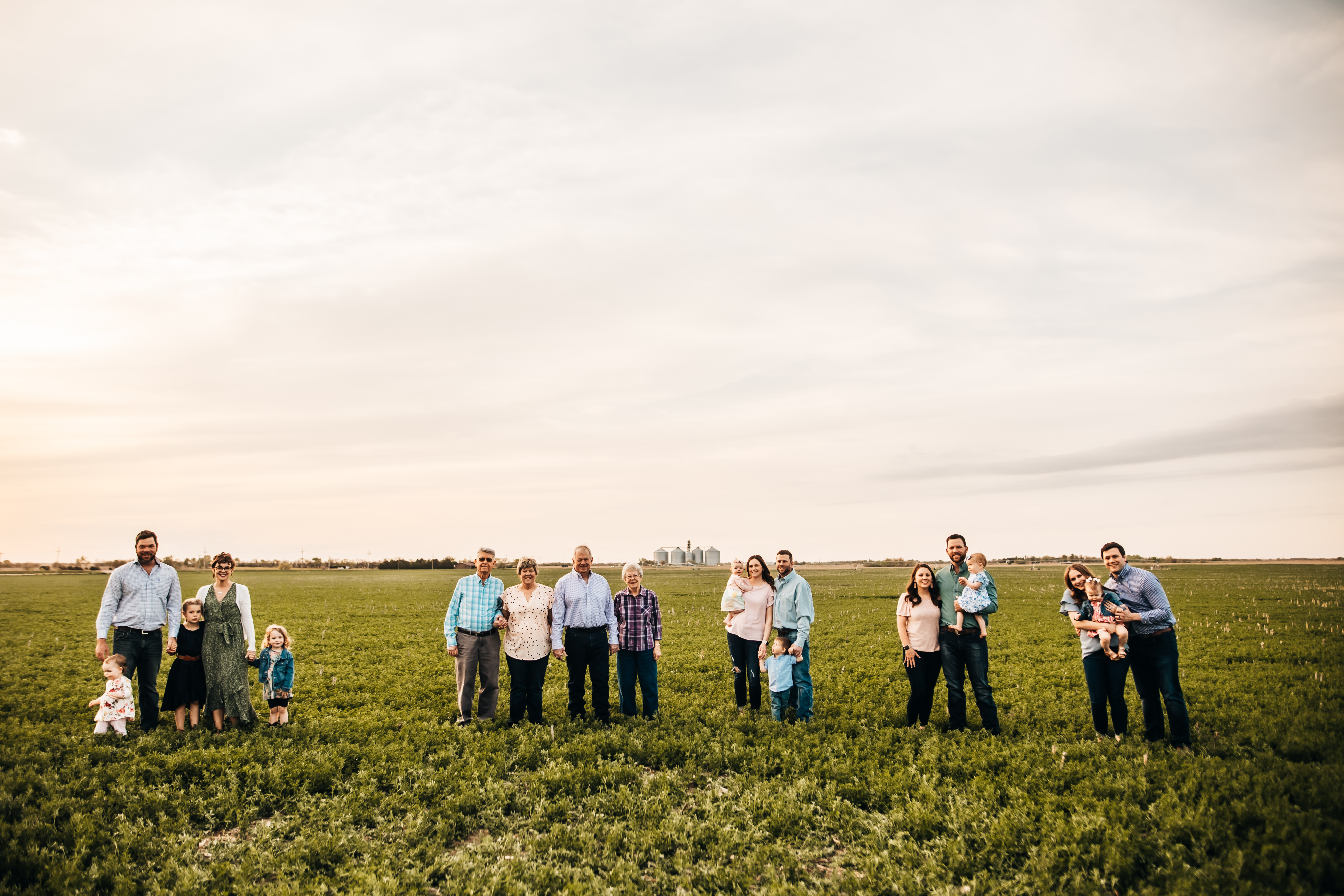Faces Behind Farm Policy: Steve Ohlde
Bob and Norma Ohlde were newlyweds in 1955 when they took a big chance with a small herd of Holsteins. Using three cows Bob had for an FFA project they started a dairy farm. It’s been 70 years and Ohlde Family Farms in Northeast Kansas proudly remains family owned and operated.

The couple’s son Steve and his wife Cindi joined the operation in 1980. “I just love what we do,” Steve said.
He passed that appreciation to his sons who help manage the farm and advance operations and implement new technology to the five locations including a heifer yard, three different dairies and a farm producing feed for the herd.

The full-circle method of growing silage and baled hay on land fertilized by manure from the cattle is pivotal to the family business, and having the opportunity to ensure the highest quality of silage and baled hay is unequivocal. Steve noted how unique their farm functions as they do everything themselves—from growing forage to pulling calves. “Pretty much everything we do in house,” he said.
The family has remained unchanged in its devotion to producing the highest quality milk and cattle. They have successfully pursued new and innovative tools to enhance their operation.
In 2022, they launched the fully automated StateLine Dairy. It currently houses about 600 cows and all daily functions of the location are powered by robots. In this venture, the Ohldes have prioritized animal well-being and the environment while cutting their workload. The 10 robotic milking machines are available to cows when they need to be milked. “It’s not at a set time, they mosey over there whenever they want,” Steve said. “The cattle like it.”

This process also provides important insight about animal routines. “Right now, they average about 2.9 visits each day,” Steve said. That data can be used to develop animal-focused routines based on their natural habits.
Additionally, an automated feed pusher ensures cows always have access to feed, and even use methods of converting manure into clean, dry bedding for stalls.
While the fully automated location of Ohlde Family Farms benefits livestock and the environment, it also addresses one of the top challenges facing the dairy – workforce. “We’ve been really fortunate to be able to keep positions filled,” Steve said.
However, labor is still a significant hurdle in many family farms across the nation. Steve also noted other challenges as burdensome government regulations and unrelenting harsh weather—both drought and winter storms.
Farmers and ranchers don’t have the luxury of deciding it is too cold to tend to the animals. “When it was 20 below out one morning with wind chill of 30 below, we're still out here caring for our livestock and I think a lot of farmers take better care of their livestock than themselves at times,” Steve laughed.
Steve said it would be valuable if more people visited a farm to increase exposure to the realities of American agriculture and understand why farmers continue to farm. “I wish that every consumer could come out here and spend some time on the farm and see how much we really, truly care about our animals. It's a seven day a week job, sun-up to sundown.”
Steve noted that marketing efforts such as “antibiotic free” milk create competition between farmers when there doesn’t have to be. “All milk is antibiotic free,” he said.

Despite hardships that come with operating the family business, Steve said he couldn’t imagine doing anything else. “It’s still the best life there is.”
He’s blessed to work alongside his family and pass along an interest in farming to his kids and grandkids. “There’s something about getting up every day, working with the livestock, planting the crops, seeing the cycle of life, seeing a calf born, and being able to raise it up and bring it to the milk herd.”
